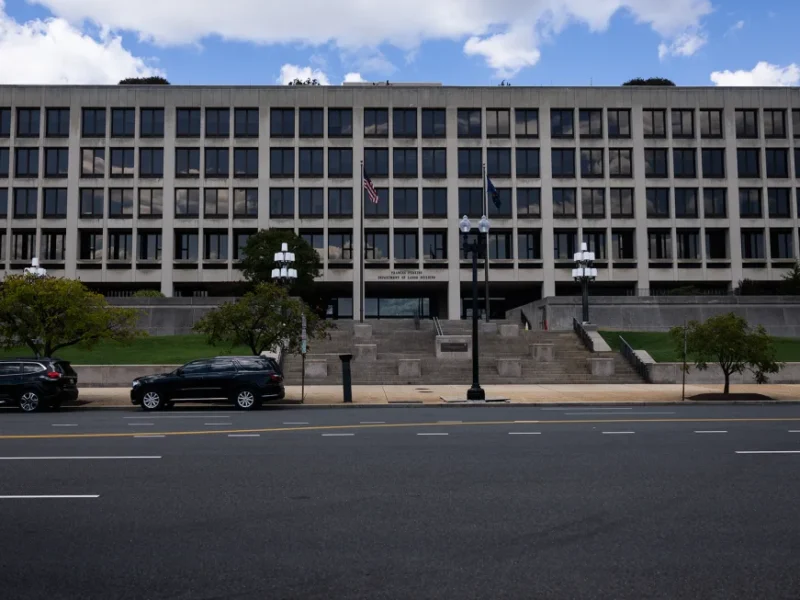Erica Groshen, a former commissioner at the Bureau of Labor Statistics, compares federal economic data to critical infrastructure, saying it is just as essential for the economy as roads and bridges. Policymakers, businesses, and other organizations rely on this data to make informed decisions that impact people’s livelihoods.
However, this vital statistical infrastructure is increasingly at risk, facing challenges such as funding shortages, declining response rates, and diminishing public trust. Groshen and others warn that the situation could worsen under President Donald Trump, who has frequently criticized economic data and advocated for cutting government programs. Additionally, the creation of the Department of Government Efficiency (DOGE) raises concerns about efforts to streamline large parts of the government.
These concerns are growing amid calls for increased funding to modernize data collection and analysis. Researchers fear that, under an administration that has questioned the legitimacy of economic figures and shut down certain federal programs, vital surveys and data could be compromised, affecting decisions that rely on these statistics.
Surveys are dwindling, and trust in them is eroding.
Federal data is regarded as the “gold standard” due to its reliability, quality, transparency, and historical consistency. However, it now faces significant challenges.
William Beach, a former BLS commissioner during Trump’s first term, warned that surveying people—long a fundamental method for gathering data—is in trouble. “Surveys are dying,” Beach said, describing the issue as a “terminal disease.” People are increasingly unwilling to participate in surveys, especially through traditional methods like in-person and phone interviews, causing response rates to fall sharply.
As response rates decline, the accuracy of estimates becomes more volatile, and benchmark revisions, which rely on hard data sources like tax records, become larger. This volatility opens the door for criticism. Beach emphasized that both sides of the political spectrum target the data when revisions increase, even though these adjustments are not uncommon.
A major example occurred in August 2024 when the BLS revised employment data for the year ending in March 2024. A downward revision of 818,000 jobs, the largest in 15 years, led Trump to accuse the Biden administration of manipulating job statistics. However, economists explained that the revision was due to ongoing pandemic effects and a surge in immigration.
Groshen highlighted that trust in these statistical agencies is crucial, comparing it to building a bridge—if people don’t trust it, they won’t use it.
Insufficient data can result in negative economic consequences.
In addition to lower response rates, statistical agencies have been dealing with a long-term reduction in funding, according to Groshen.
As a result, the agency has had to improve its efficiency, but this has involved compromises. “It has been necessary to cut back on resources allocated for contingency, resilience, and modernization to ensure the continuous flow of data that users rely on,” she explained.
The Census Bureau has been working on modernizing the Current Population Survey, one of the two major surveys that contribute to the monthly jobs report and the national unemployment rate. However, this survey has been facing a steady decline in response rates due to factors like privacy concerns, cellphone-only households, and the availability of respondents.
The goal is to introduce an online response option. “To implement this change, rigorous testing is required, and the process is slow and meticulous to preserve the continuity of the data over time,” Groshen stated. “The Census Bureau and BLS have been requesting funding for this for five years, but it hasn’t been granted.”
Plans to streamline government operations pose significant risks to federal data, as statistical agencies are categorized under discretionary funding. “If the budget is heavily cut, almost all discretionary spending would be affected, including the statistical agencies,” she noted.
Such actions would have the opposite effect of the intended goal. “If you want government to be efficient, how can you achieve that if you can’t measure anything, understand cause and effect, or assess economic conditions to identify problem areas?” she argued. “With less or poorer information, decisions made by companies and governments will be less effective. The economy will become less efficient, and investors will lack reliable data to guide their investments.”
Despite these challenges, Groshen expressed support for certain elements of Project 2025, a conservative initiative outlining a restructured federal government. One proposal involves consolidating statistical agencies. “I think consolidation, if done correctly, could benefit the statistical agencies,” she said. “However, I would place them in an independent agency led by the US Chief Statistician, ensuring secure funding.”
In times of limited funds, Beach suggested exploring partnerships with universities to manage some surveys and programs or reducing others.
Fears of being ‘erased’
There are several safeguards in place to protect government data.
Various organizations, including grassroots groups, actively archive government websites, particularly during transitions between administrations. One such initiative is the End of Term Web Archive project, which has been operational since 2008. Its goal is to collect and preserve information from government and military websites at the end of each presidential term.
The End of Term Web Archive accepts nominations for URLs to be archived, referred to as “seeds” for web crawlers. “I’ve checked our reports, and all of those [economic data] agencies’ sites have been nominated,” wrote James Jacobs, a US government information librarian at Stanford University and EOT participant, in an email to CNN.
Jacobs pointed out that economic data is often collected based on legislative mandates, and groups like the Census Project and the Association of Public Data Users actively monitor and advocate for government data at the Congressional level.
A recent report from the UCLA School of Law’s Williams Institute warns that cuts to data or the removal of information could disproportionately affect marginalized communities. Executive orders by Trump that redefined “sex” as strictly male and female and eliminated diversity, equity, and inclusion-focused initiatives could negatively impact federal data on marginalized groups, including the LGBTQ+ community.
“This creates a lack of understanding about what’s happening with a very vulnerable population,” said Christy Mallory, the Williams Institute’s interim executive director and legal director. “To tackle broader economic and employment issues, it’s essential to understand what’s affecting sub-populations, such as transgender individuals, who face higher rates of unemployment and underemployment.”
However, Mallory noted, the consequences of these data changes are far-reaching and could impact the health and wellbeing of Americans.
“Not seeing questions about you on surveys or reading about questions being removed can have an emotional impact that people often overlook: the feeling of being erased,” Mallory added.











